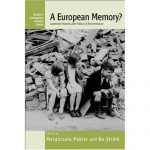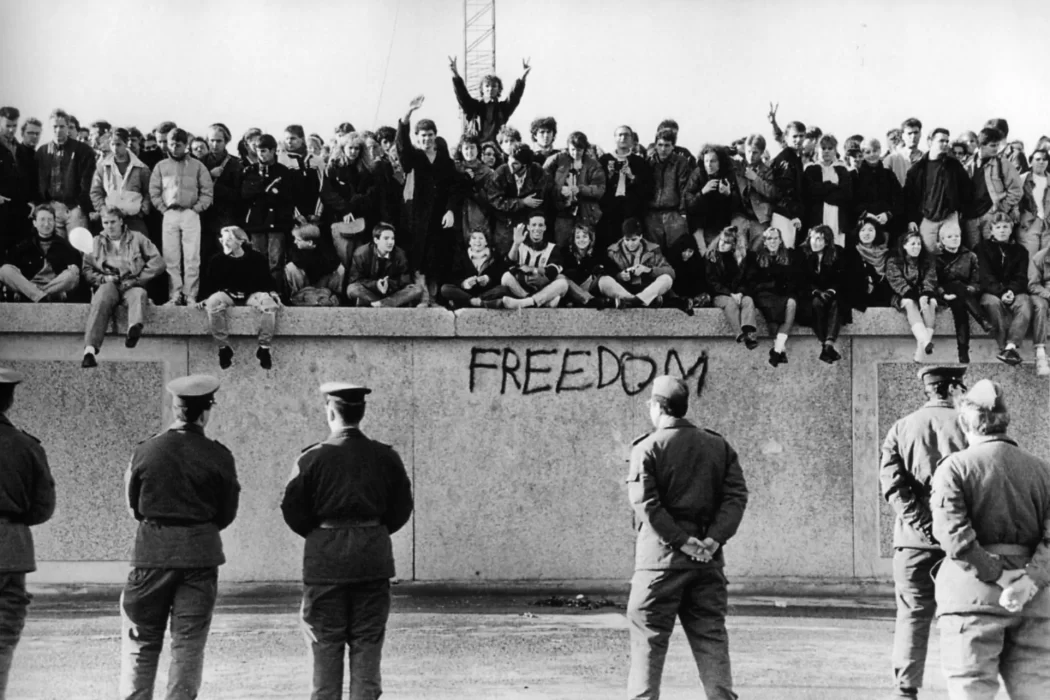Magorzata Pakier, Bo Stråth, A European Memory? Contested Histories and Politics of Remembrance, Berghahn Books, 2010

An examination of the role of history and memory is vital in order to better understand why the grand design of a United Europe-with a common foreign policy and market yet enough diversity to allow for cultural and social differences-was overwhelmingly turned down by its citizens. The authors argue that this rejection of the European constitution was to a certain extent a challenge to the current historical grounding used for further integration and further demonstrates the lack of understanding by European bureaucrats of the historical complexity and divisiveness of Europe’s past. A critical European history is therefore urgently needed to confront and re-imagine Europe, not as a harmonious continent but as the outcome of violent and bloody conflicts, both within Europe as well as with its Others. As the authors show, these dark shadows of Europe’s past must be integrated, and the fact that memories of Europe are contested must be accepted if any new attempts at a United Europe are to be successful.
Table of Contents
List of Illustrations Acknowledgements Notes on Contributors Introduction: A European Memory? Malgorzata Pakier and Bo Stråth
Part I. Europe, Memory, Politics, and History. Uneasy Relationships Chapter
1. On ‘European Memory’: Some Conceptual and Normative Remarks Jan-Werner Müller
2. The Uses of History and the Third Wave of Europeanization Klas-Göran Karlsson.
3. Halecki Revisited: Europe’s Conflicting Cultures of Remembrance Stefan Troebst
4. Iconic Remembering and Religious Icons: Fundamentalist Strategies in European Memory Politics? Wolfgang Kaschuba
5. Culture, Politics, Palimpsest. Theses on Memory and Society Heidemarie Uhl
6. Damnatio Memoriae and the Power of Remembrance. Reflections on Memory and History Frederick Whitling
7. Seeing Dark and Writing Light: Photography Approaching Dark and Obscure Histories James Kaye
Part II. Remembering Europe’s Dark Pasts
Section 1: Remembering the Second World War
8. Remembering the Second World War in Western Europe 1945 – 2005 Stefan Berger
9. Practices and Politics of Second World War Remembrance. (Trans-)National Perspectives from Eastern and South-eastern Europe Heike Karge
10. A Victory Celebrated. Danish and Norwegian Celebrations of the Liberation Clemens Maier
Section II: Towards a Europeanization of the Commemoration of the Holocaust
11. Remembering Europe’s Heart of Darkness – Legacies of the Holocaust in Post-war European Societies Cecilie Felicia Stokholm Banke
12. Holocaust Remembrance and Restitution of Jewish Property in the Czech Republic and Poland after 1989 Stanislaw Tyszka
13. A Europeanization of the Holocaust Memory? German and Polish Reception of Europa, Europa (1990) by Agnieszka Holland Malgorzata Pakier14. Italian Commemoration of the Shoah. The Construction of a Survivor-oriented Narrative and its Impact on Italian Politics and Practices of Remembrance Ruth Nattermann
Section 3. Coming to Terms with Europe’s Communist Past
15. Managing the History of the Past in the Former Communist States Arfon Rees
16. Eurocommunism. Commemorating Communism in Contemporary Eastern Europe Péter Apor
17. The Memory of the Dead Body Senadin Musabegovic
18. Neither Help nor Pardon? Communist Pasts in Western Europe Kevin Morgan
Section 4. Coming to Terms with Europe’s Colonial Past
19. Politics of Remembrance, Colonialism, and the Algerian War in France Jan Jansen Chapter
20. Memory Politics and the Use of History: Finnish-speaking Minorities at the North Calotte Lars Elenius Conclusion: Nightmares or Daydreams? A Postscript on the Europeanization of Memories Konrad H. Jarausch Bibliography









